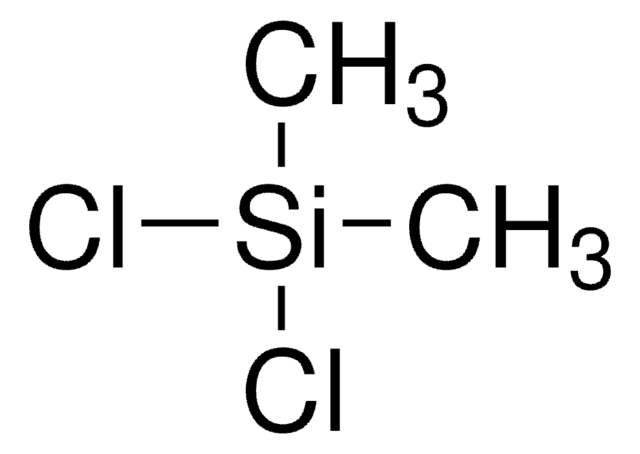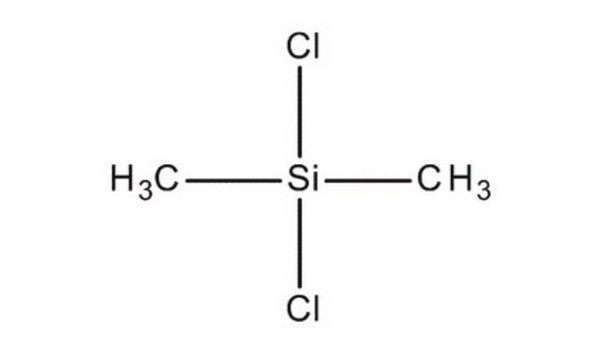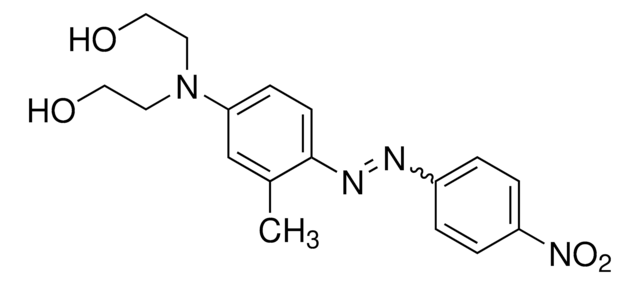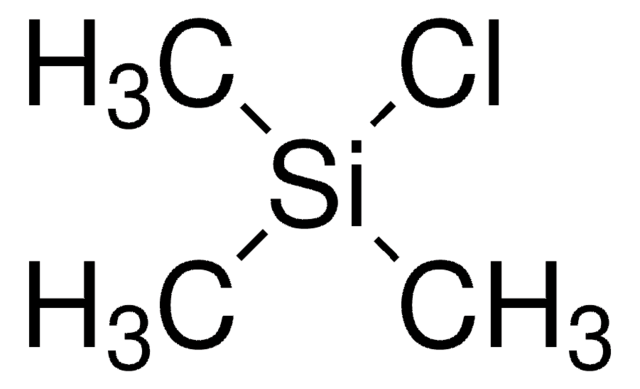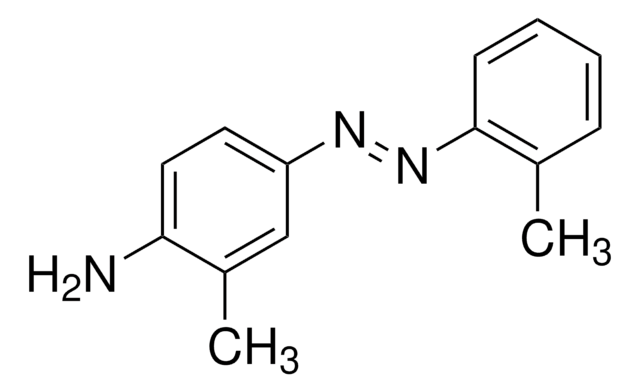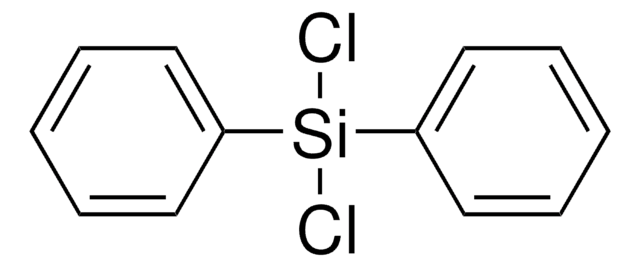80430
Dichlorodimethylsilane
produced by Wacker Chemie AG, Burghausen, Germany, ≥99.0% (GC)
Sinonimo/i:
Silane M2, DMDCS, Dimethyldichlorosilane
About This Item
Prodotti consigliati
Grado
produced by Wacker Chemie AG, Burghausen, Germany
Livello qualitativo
Saggio
≥99.0% (GC)
Stato
liquid
Indice di rifrazione
n20/D 1.404 (lit.)
P. ebollizione
70 °C (lit.)
Punto di fusione
−76 °C (lit.)
Densità
1.07 g/mL at 25 °C (lit.)
Stringa SMILE
C[Si](C)(Cl)Cl
InChI
1S/C2H6Cl2Si/c1-5(2,3)4/h1-2H3
LIKFHECYJZWXFJ-UHFFFAOYSA-N
Cerchi prodotti simili? Visita Guida al confronto tra prodotti
Descrizione generale
Applicazioni
- As a silane coupling agent in the synthesis of silica nanoparticles and in their surface modification studies.
- To prepare polydimethylsiloxane microemulsions by reacting with sodium dodecylpolyoxyethylene sulfate.
- To prepare a novel heterasumanene where the benzylic carbon atoms of the sumanene are replaced by heteroatom (S, Si) functionalities
Altre note
Avvertenze
Danger
Indicazioni di pericolo
Classi di pericolo
Acute Tox. 3 Inhalation - Acute Tox. 4 Oral - Eye Dam. 1 - Flam. Liq. 2 - Skin Corr. 1A - STOT SE 3
Organi bersaglio
Respiratory system
Codice della classe di stoccaggio
3 - Flammable liquids
Classe di pericolosità dell'acqua (WGK)
WGK 1
Punto d’infiammabilità (°F)
33.8 °F - closed cup
Punto d’infiammabilità (°C)
1 °C - closed cup
Dispositivi di protezione individuale
Faceshields, Gloves, Goggles, type ABEK (EN14387) respirator filter
Scegli una delle versioni più recenti:
Possiedi già questo prodotto?
I documenti relativi ai prodotti acquistati recentemente sono disponibili nell’Archivio dei documenti.
I clienti hanno visto anche
Il team dei nostri ricercatori vanta grande esperienza in tutte le aree della ricerca quali Life Science, scienza dei materiali, sintesi chimica, cromatografia, discipline analitiche, ecc..
Contatta l'Assistenza Tecnica.